The Second Annual 2016 Division of Social Sciences Summer Reading List
“Rebels and Visionaries” is the theme for 2016, inspired from the division’s Dream is Still Alive video.
The division asked students, faculty, staff, and alumni from the social sciences to share a book about an inspiring person or a provocative idea, a social movement or an influential leader. Who questioned authority? Who pioneered a bold concept? Who sought social, political, economic, or environmental change? The suggestions are a rich variety that cross disciplines and span decades.
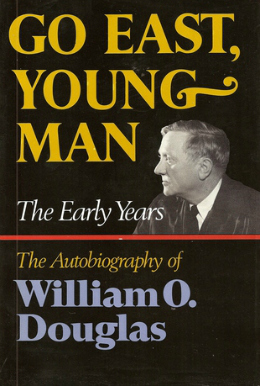
Go East, Young Man by William O. Douglas
Go East Young Man (Random House, 1974) is the memoir by United States Supreme Court Justice William O. Douglas who in 1939, at the age of 40, was appointed to the Court. Go East, Young Man describes his pre-judicial life, from growing up in the Pacific North West to his move to the East Coast. Chancellor Blumenthal also recommends the second part of Douglas' autobiography, The Court Years, 1939 - 1975.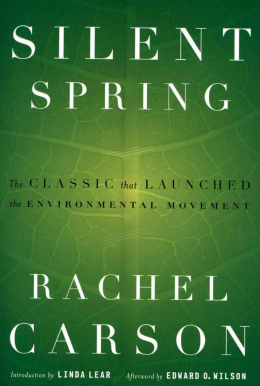
Silent Spring by Rachel Carson
In addition to Rachel Carson's Silent Spring (Houghton Mifflin, 1962), Dean Kamieniecki also recommends the following:
Small Is Beautiful: A Study of Economics As If People Mattered (Blond & Briggs, 1973-2010, HarperCollins 2010-present) by E. F. Shumacher
The Collapse of Western Civilization: A View from the Future (Columbia University Press, 2014) by Naomi Oreskes
Collapse How Societies Choose to Fail or Succeed (Viking Press, 2005) by Jared Diamond
The Closing Circle: Nature, Man, and Technology (Bantam Books, 1980) by Barry Commoner
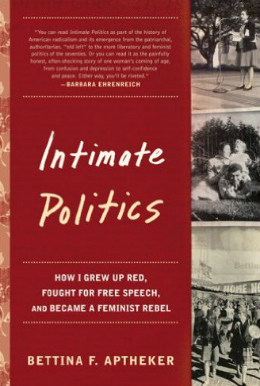
Intimate Politics: How I Grew Up Red, Fought for Free Speech and Became A Feminist Rebel by Bettina Aptheker
"Bettina is this year’s commencement keynote speaker for College Ten. She is an influential and beloved figure on campus, an inspiration to many students, and an esteemed colleague. A decade after its publication, the themes that Bettina discuss in her memoir—free speech, war, civil rights, gender equality—are just as timely and important today. Moreover, Intimate Politics: How I Grew Up Red, Fought for Free Speech, and Became a Feminist Rebel (Seal Press, 2006) is a poignant and candid account of the struggles Bettina grappled with throughout her life, a testament to her strength and perseverance."
- Flora Lu
Provost, Colleges Nine and Ten
Associate Professor of Environmental Studies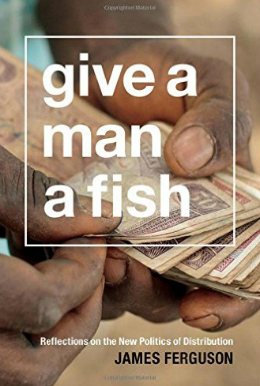
Give a Man a Fish: Reflections on the New Politics of Distribution
"I recommend James Ferguson's Give a Man a Fish: Reflections on the New Politics of Distribution (Duke University Press, 2015) for his argument that basic income grants are emerging in southern Africa pioneering a partial alternative to industrial capitalism."
- Ben Crow
Professor of Sociology
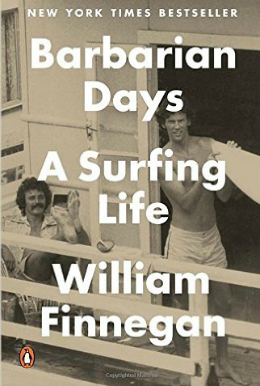
Barbarian Days: A Surfing Life by William Finnegan
"If you live by the coast and especially if you ever go into the water you must read Barbarian Days: A Surfing Life (Penguin, 2016) by New Yorker writer Bill Finnegan (Cowell, '74, English literature). This memoir of surfing and the quest for waves won this year's Pulitzer Prize for biography. As a lifelong surfer Finnegan gets all the little things: the lineup, the pecking order, the obsession. But this is more than a surf yarn, it's a meditation on nature and writing and pursuing one's passion. UC Santa Cruz figures in it, too.
- Guy Lasnier
Public Affairs
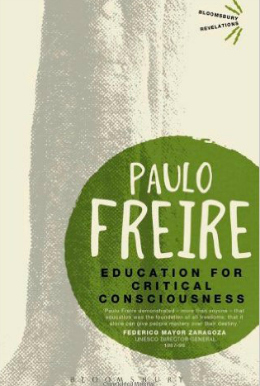
Education for a Critical Consciousness by Paulo Freire
"Few scholars in education have been as influential in the making of rebels and visionaries than Paulo Freire. He believed education to be a process of reflection, freedom, and action. Central to Education for a Critical Consciousness (1973; Bloomsbury Academic Reprint, 2013) is the concept of “integration,” whereby people do not merely adapt to a chaotic and oppressive society – they come to understand themselves as agents of social justice capable of working together to change the world the world around them. As a first-generation student, I remain inspired by this book eight years later; I am on a mission to study the role of education in social movements and nation building. What does “integration” look like across industries, policies, and communities given that the issues we face as a nation are vastly complex and interconnected?"
- Alfredo Reyes,
Ph.D. student, Education
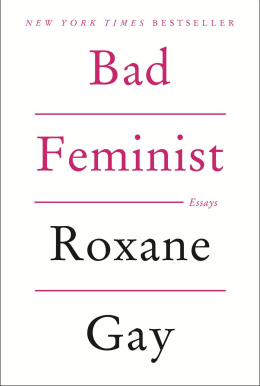
Bad Feminist by Roxane Gay
"One of my favorite books this year has been Bad Feminist (Harper Perennial, 2014) by Roxane Gay. It's a collection of witty and thought-provoking personal essays about Gay's experiences in grad school, trying to date successfully as a new professor, learning how to build positive friendships with other women, and how to consume pop culture without putting feminist on pedestals. The title comes from her realization that all feminists are just people, and none of us can be consistently perfect. Throughout her personal reflections, she grapples with questionable but popular portrayals of women in movies, films, books, and tv shows from the 1980s to now, why these repeated images are popular, and why in certain cases their faults might be forgiven. It seems like readers from any generation will find something relatable."
- Lori Schachle
College Academic Programs Coordinator
Colleges Nine and Ten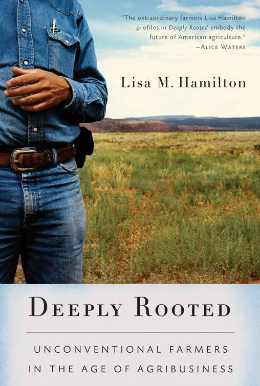
Deeply Rooted: Unconventional Farmers in the Age of Agribusiness by Lisa Hamilton
"Deeply Rooted: Unconventional Farmers in the Age of Agribusiness (Counterpoint, 2009) explores the topic of farmer-as-visionary-and-rebel. It is an excellent read and important to anyone interested in the human and social dimensions of agriculture transfomation in this age of upheaval."
- Mark Lipson,
Research Associate, Organic Agriculture Policy Studies
Center for Agroecology and Sustainable Food Systems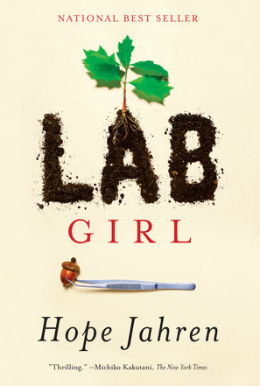
Lab Girl by Hope Jehren
"When I was a graduate student, I didn’t have any female scientist role models, so I have always enjoyed reading accounts of the different paths women have taken to succeed in science. Hope Jahren is an outstanding storyteller. In Lab Girl (Penguin Random House, 2016) she interweaves engaging tales of her career path with stories of the plants she studies."
- Karen Holl,
Professor of Environmental Studies
Director, Ken Norris Center for Natural History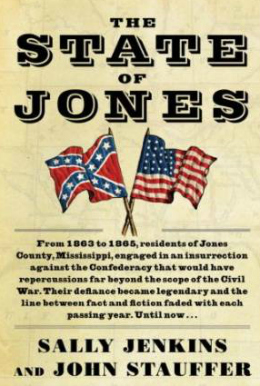
The State of Jones: The Small Southern County that Seceded from the Confederacy by Sally Jenkins and John Stauffer
"The State of Jones: The Small Southern County that Seceded from the Confederacy (Anchor, 2010) tells the story of a group of Mississippi farmers who resisted the Confederacy during the Civil War and ultimately pledged allegiance to the United States and fought their own battles in the swamps surrounding their homes. They were isolated, having little contact or support from the Union, but preferred to commit their lives to resistance than to support a regime which wasn't aligned with their interests."
- Eric Aldrich,
Assistant Professor of Economics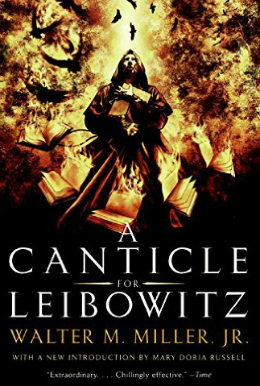
A Canticle for Leibowitz by Walter Miller
"Older, classic, probably on many of our high school reading lists: A Canticle for Leibowitz (1960) by Walter Miller; post-apocalyptic dystopia, funny, sad, provocative)."
- Daniel Press,
Olga T. Griswold Professor of Environmental Studies
Executive Director, Center for Agroecology and Sustainable Food Systems
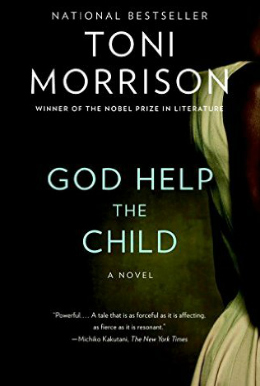
God Help the Child by Toni Morrison
"I recommend God Help the Child (Knopf, 2015) by Toni Morrison. In classic Morrison style, we are introduced to African American characters who are complex and original. Morrison illuminates the devastation of a dark, beautiful child rejected yet loved by her light-skinned mother, which sets her on a journey from anger to self love and redemption. Powerful."- Pat Zavella,
Professor of Latin American and Latino Studies
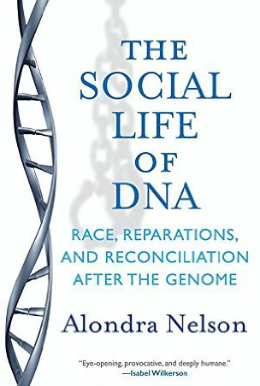
The Social Life of DNA by Alondra Nelson
Recommended by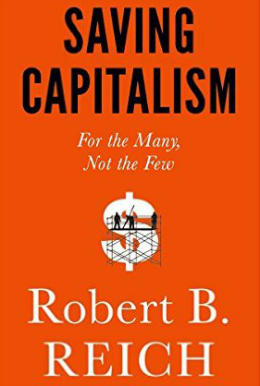
Saving Capitalism by Robert Reich
Inspired by Reich's visit to campus this year, Development Assistant Liz Church says, "I would suggest one of Robert Reich's books! I know I've been meaning to read them."
- Liz Church,
Development Assistant
Social Sciences Division
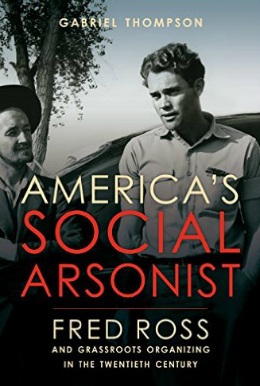
America's Social Arsonist: Fred Ross and Grassroots Organizing in the Twentieth Century by Gabriel Thompson
"I'm looking forward to reading America's Social Arsonist: Fred Ross and Grassroots Organizing in the Twentieth Century (University of California Press, 2016) this summer! Fred Ross is a critical part of the history of community organizing in the U.S., but little has been written about him directly."
- Chris Benner,
Professor of Environmental Studies and Sociology
Dorothy E. Everett Global Information and Social Entrepreneurship Chair and Director, Everett Program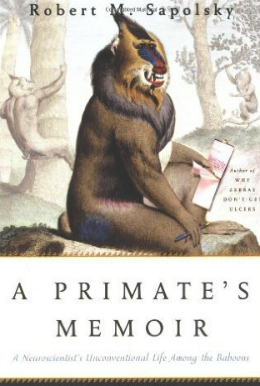
A Primate's Memoir: A Neuroscientist's Unconventional Life Among the Baboons by Robert Sapolsky
"A Primate's Memoir: A Neuroscientist's Unconventional Life Among the Baboons by Robert Sapolsky, professor of biology, neuroscience, and neurosurgery at Stanford University is a perfect read for anyone who has ever done field research and/or loves to travel. Sapolsky's memoire shares his experience living in eastern Africa and studying primates in the 1970's. His is a story of coming of age told with wit, intelligence, and grandeur. Great for the beach or the classroom."
- Jackie Powell,
Administrative Specialist
Chicano Latino Research Center
2312 by Kim Stanley Robinson
"Much newer contribution to the current climate literature, or “cli-fi” as some call it: 2312 (Orbit, 2013) by Kim Stanley Robinson. Here’s a short article about cli-fi."
- Daniel Press,
Olga T. Griswold Professor of Environmental Studies and Executive Director,
Center for Agroecology and Sustainable Food Systems
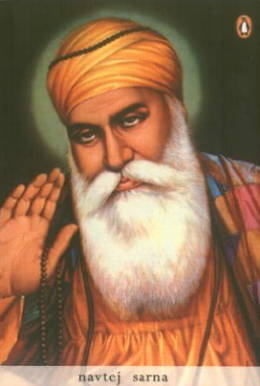
The Book of Nanak by Navtej Singh Sarna
"I’d like to share this book with the campus community in my role as Sarbjit Singh Aurora Chair of Sikh and Punjabi Studies. The Book of Nanak by Navtej Singh Sarna (Penguin Books (2005) is about Nanak, who founded the Sikh faith in Punjab, South Asia, in the early 16th century. Nanak is often presented as advocating profound faith in a singular divine force, which is accurate, but he also provided trenchant critiques of unjust rulers, caste hierarchies and gender inequality. Ever since, standing up for social justice has been a strong thread within the Sikh community, whoe live around the world, including a quarter million in the United States (half of those in California). The author is a Sikh and an Indian diplomat, currently serving as the country’s High Commissioner (Ambassador) to the United Kingdom. The book provides a non-academic account of his life and teachings in simple modern language. I chose The Book of Nanak because it provides a small window into the minority Sikh community, which has several dozen members among the UCSC student body."
- Nirvikar Singh
Distinguished Professor of Economics
Sarbjit Singh Aurora Chair in Sikh and Punjabi Studies
Director, Center for Analytical Finance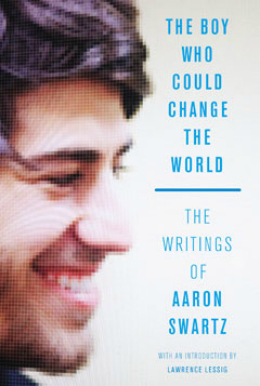
The Boy Who Could Change the World The Writings of Aaron Swartz by Aaron Swartz
"Internet prodigy Aaron Swartz was many things: RSS feed co-author. Reddit co-owner. Creative Commons architect. And as the book titles alludes, he could have been more. But at age 26, Swartz committed suicide after being aggressively prosecuted for copyright infringement (he tried to download the digital archives of JSTOR). He was a real rebel for the digital age. He advocated for a free flow of information, open-access, and social justice in every corner of the web and the world. The Boy Who Could Change the World The Writings of Aaron Swartz is a post-humous collection of his writings and includes an introduction by his close friend and colleague, Lawrence Lessig. It is a must read for anyone interested in sharing ideas and knowledge in the internet era."
- Melissa De Witte
Web Presence Coordinator
Division of Social Sciences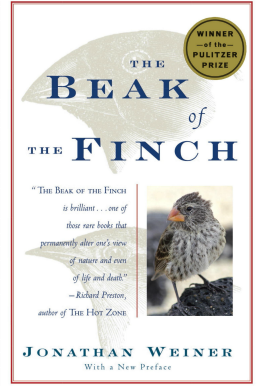
The Beak of the Finch by Jonathan Weiner
"In my first year as a Ph.D. student, I've often thought back to one of the books that inspired in me love and excitement for science. The Beak of the Finch (Vintage, 1995) by Jonathan Weiner gracefully intertwines past and future in telling the story of evolution through the lens of Peter and Rosemary Grant's incredible research of Darwin's finches in the Galapagos Islands. The book touches on Charles Darwin's life and legacy throughout, and on the vision and determination to challenge the status quo and belief systems."
- John Armstrong
Ph.D. student, Environmental Studes
